 Petzlover
Petzlover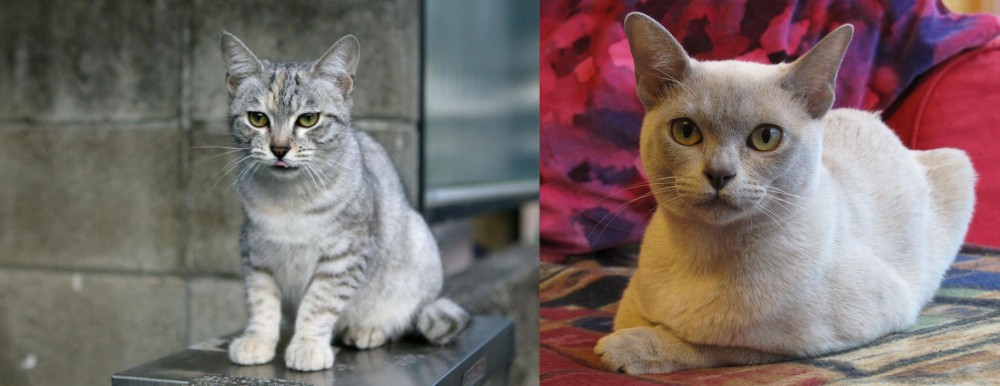 Australian Mist is originated from Australia but European Burmese is originated from Myanmar. Both Australian Mist and European Burmese are having almost same weight. Both Australian Mist and European Burmese has almost same life span. Both Australian Mist and European Burmese has same litter size. Both Australian Mist and European Burmese requires Low Maintenance.
Australian Mist is originated from Australia but European Burmese is originated from Myanmar. Both Australian Mist and European Burmese are having almost same weight. Both Australian Mist and European Burmese has almost same life span. Both Australian Mist and European Burmese has same litter size. Both Australian Mist and European Burmese requires Low Maintenance.
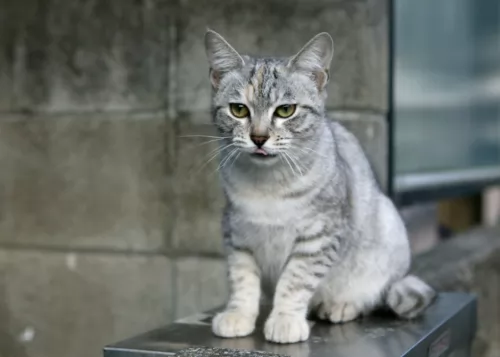 This beautiful cat, the Australian Mist was developed in Australia and is a cross between the Burmese Cat, the Abyssinian as well as domestic shorthairs.
This beautiful cat, the Australian Mist was developed in Australia and is a cross between the Burmese Cat, the Abyssinian as well as domestic shorthairs.
The breed was developed in 1975 by Truda Straede looking to bring about a short-haired cat with a ticked or spotted coat. At first the cat breed was known as the Spotted Mist but this changed to Australian Mist in 1998.
This is also because cats with marbled coats as opposed to spotted coats were accepted as part of the breed. This is an Australian cat but today there are some in UK, America and Germany.
The cat is recognized by governing councils Australia. The cats have a large gene pool.
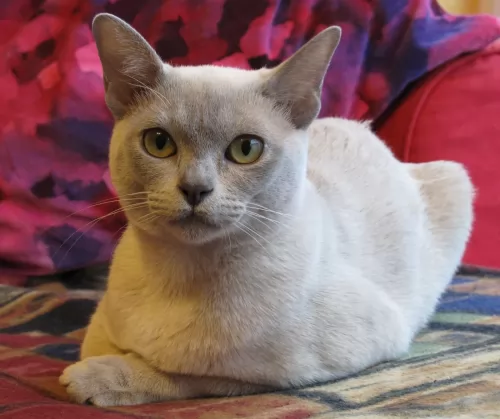 The European Burmese was developed in the 1960s when they were imported to England by British breeders.
The European Burmese was developed in the 1960s when they were imported to England by British breeders.
They were then crossed with red-point Siamese as well as British Shorthairs to expand the gene pool and number of coat colors.
In 1994, the cat was recognized by the Cat Fanciers Association and later by the Canadian Cat Association as well as the Cat Fanciers Federation and others as well.
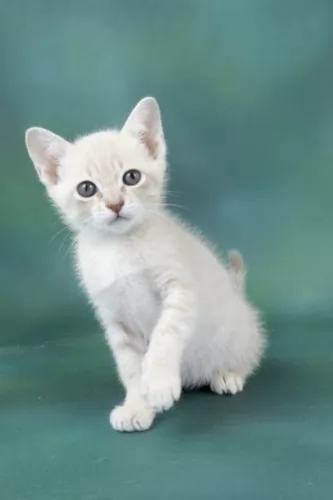 There is nothing particularly unusual about these beautiful cats as the Australian Mist is a medium-sized cat weighing between 4 to 7kg. Its short coat comes without an undercoat and it is a low-shedding cat.
There is nothing particularly unusual about these beautiful cats as the Australian Mist is a medium-sized cat weighing between 4 to 7kg. Its short coat comes without an undercoat and it is a low-shedding cat.
The coat can be spotted or marbled and the legs and tail come with a pattern of black rings. The cat’s coat is short and comes in a number of colors – gold, peach, brown, blue, lilac, chocolate and caramel.
The Australian Mist has large, bright, expressive green eyes with a rounded head and a furry tail.
The Australian Mist is known for its exceptional temperament, and they don’t mind being picked up and cuddled. For this reason they make great cuddly pets for first-time cat owners as well as homes with children.
He is more than willing to get on with other pets in the home as well. They’re lively cats and will not mind being put on a leash and going for a walk, although because they are such cats that thrive on human company, this cat is willing to spend the entire day indoors with their human family.
These companionable cats make excellent animal friends for invalids.
Desexing your Australian Mist will ensure that he likes to stay close to home and become a solid family member.
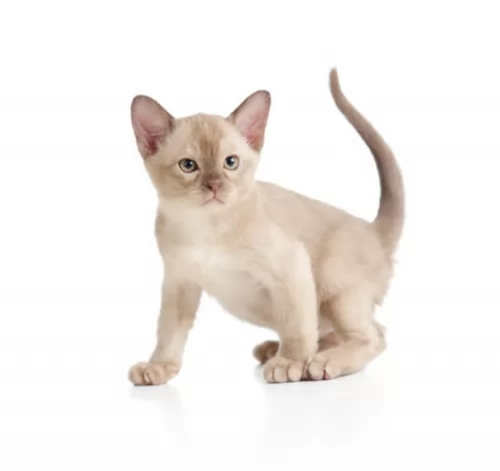 Your beautiful European Burmese cat is a small to medium-sized cat and both males and females will weigh between 3 and 5kg.
Your beautiful European Burmese cat is a small to medium-sized cat and both males and females will weigh between 3 and 5kg.
The cat’s coat is short and glossy and it comes in a number of different colors such as white, brown, cream, blue, red and tortoisehell.The cat has large, expressive eyes that are a yellow or amber shade.
Your European Burmese has a silky short coat and the coat will also only need to be brushed once a week to keep it in tip-top condition.
The European Burmese is a very affectionate, loyal ad intelligent cat, loving the companionhip they share with their human family.
They’re a great pet for families as they’re active and playful. They are also a cat breed that likes to bond with one particular family member more than others.
They’re also inclined to be lap cats, grabbing each opportunity to be stroked and petted. They will also be quite willing to become friends with other pets in the home and don’t like to be left alone for a long time.
They like having other pets around to keep them company and can become withdrawn if constantly left on their own.
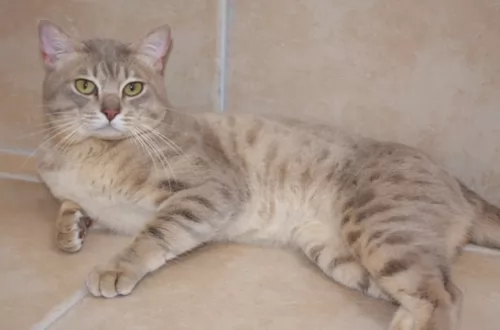 The Australian Mist is capable of becoming the perfect pet for single people, couples, families, the sick, and the elderly.
The Australian Mist is capable of becoming the perfect pet for single people, couples, families, the sick, and the elderly.
They just thrive on human companionship and love the indoor life. You can expect to have your furry companion with you for a good time as their life expectancy is into the late teens – if you provide them with a happy, comfortable home.
Bring one of these wonderful fur companions into your home and you’ll see that the Australian Mist is ready to quickly become a member of your unique family.
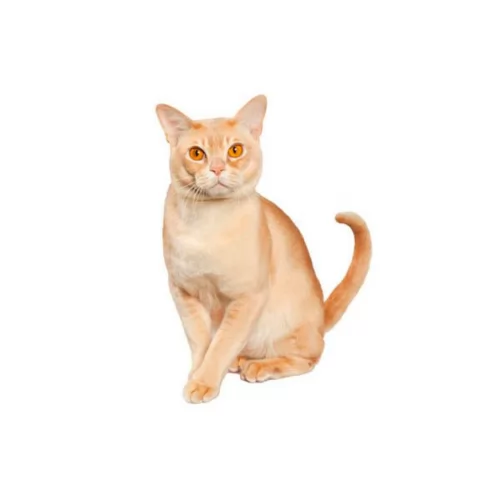 Your European Burmese has a sweet disposition and it is a loving, companionable cat. They enjoy the company of their human owners as well as other pets.
Your European Burmese has a sweet disposition and it is a loving, companionable cat. They enjoy the company of their human owners as well as other pets.
They can be quite vocal too and they don’t like being left alone. If you work all day, it will be a good idea to have another pet as a companion for the European Burmese.
The European Burmese loves to play and is a fun-loving, active, social cat. While they love their human family, they may not make the greatest pet for an inactive, single person as these cats actually seek out companionship.
A person unable to involve themselves with this cat, may well find it becoming depressed. These are cats that require a lot of interaction and attention, craving the attention of their human families.
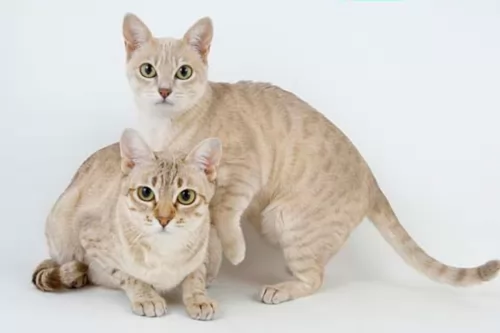 These are generally long-lived cats and with good health, these robust cats from Australia can live well into their teens.
These are generally long-lived cats and with good health, these robust cats from Australia can live well into their teens.
The Australian Mist hasn’t got any particular health care issues, but as with every cat, it is a good idea to see that he gets to the vet for an annual check-up to make sure all is still well.
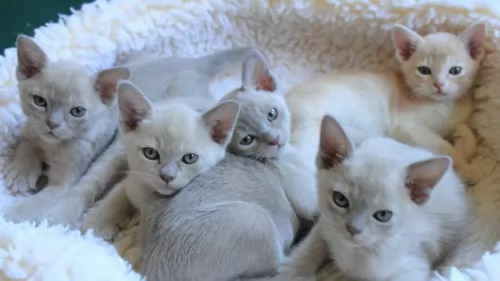 The European Burmese is a fairly healthy cat and is unlikely to cost you a lot in terms of vets fees.
The European Burmese is a fairly healthy cat and is unlikely to cost you a lot in terms of vets fees.
Just like with other cats, some of the common cat illnesses include developing diabetes mellitus. There have been some of these cats that ave been known to suffer from Feline Orofacial Pain Syndrome (FOPS).
It is a disease related to the teeth. Teeth problems are a common ailment with cats. With this particular problem, there is an unusual amount of pain when the cat's adult teeth begin to emerge. Your cat will be displaying a lot of licking and chewing motions. The symptoms do however go away once the adult teeth come in.
The cat will in all likelihood need to see the vet for pain medication and other treatments such as a potassium supplement.
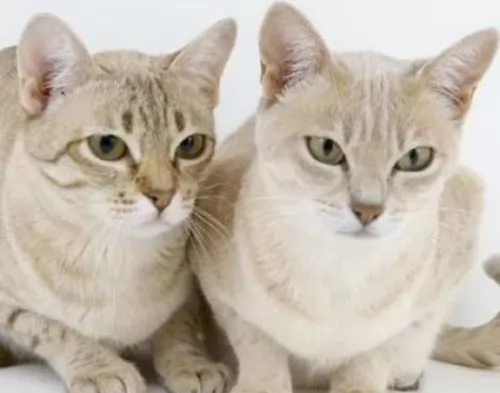 They’re moderate shedders and the short lying coat of this cat won’t require much grooming. It is always a good idea to brush a short-haired cat like the Australian Mist at least just once a week to get rid of dust and loose hairs. Of course, the cat thrives on the attention that comes with brushing him as well.
They’re moderate shedders and the short lying coat of this cat won’t require much grooming. It is always a good idea to brush a short-haired cat like the Australian Mist at least just once a week to get rid of dust and loose hairs. Of course, the cat thrives on the attention that comes with brushing him as well.
Because your Australian Mist is a fairly active cat you want to buy commercially manufactured cat food that is of the highest quality to maintain his health and condition.
These cats are prone to putting on weight and you want to ensure the right food portions to maintain his weight.
He should never be without a constant supply of fresh, cool water. A good diet for your cat can go a long way to eliminating- or cutting down on veterinary expenses.
If you’re unfamiliar with what to feed your cat, your furry friend’s basic nutrition needs will require having good protein from meat, fish and poultry. You always want to be sure that Taurine, an essential amino acid is always included in the food as well as other important vitamins, minerals, fatty acids and enzymes.
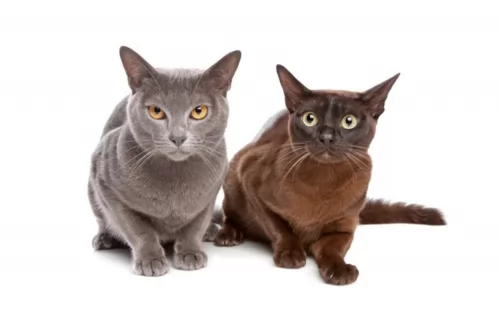 Because the European Burmese is a very affectionate, loyal cat, and because they thrive on the companionship of their human family, you owe it to him to provide him with consistent companionship. They are friendly cats and will be amicable to visitors to the home too.
Because the European Burmese is a very affectionate, loyal cat, and because they thrive on the companionship of their human family, you owe it to him to provide him with consistent companionship. They are friendly cats and will be amicable to visitors to the home too.
Scratching is a natural behavior of pets so instead of becoming angry with your cat when he scratches on your furniture, provide him with a scratching post.
You can also learn how to carefully clip your cat's nails, otherwise a professional cat groomer can do it for you.
It’s not always easy keeping a cat indoors and that is why neutering or spaying becomes important to avoid unwanted kittens. It makes your European Burmese a more balanced cat and it has a host of health benefits too.
It can’t be stressed enough how important good food is for the health of people and animals. The European Burmese needs top quality food high in proteins and meat to remain healthy.
If you feed your cat human food or food high in carbs, expect to spend a lot on vet fees.
Make sure your pet enjoys his food but that it is also nutritious and in the right portions to avoid obesity.
Kittens will eat 4 bowls of food a day and then progress to 2 bowls of food after the cat turns one year of age.